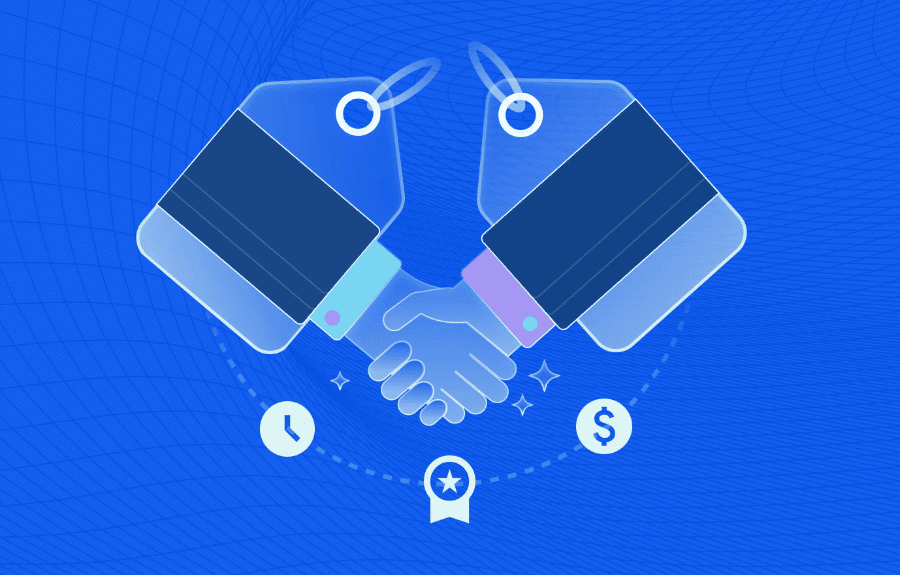📑 Table of Contents
In today’s digital chaos, trust is rare. Buyers ignore emails. Calls go unanswered. Newsfeeds overflow with noise. Yet, relationships remain the heart of a B2B channel and so does SMS.
So, how do you cut through? SMS marketing offers a new way forward. It’s fast, direct, and surprisingly personal. And it’s changing how B2B brands connect.
While B2C companies have embraced SMS for years, many B2B brands still hesitate. They see texting as too casual or too invasive. However, the shift in buyer behavior demands adaptation. Decision-makers now expect speed, personalization, and relevance—exactly what SMS delivers.
Why SMS Marketing Matters for B2B
Most B2B brands focus on email and calls. But those channels are saturated. SMS gives you a new edge. With 98% open rates and 90% read within 3 minutes, text messaging offers immediacy that others can’t.
Plus, it feels more personal. Texts land in the same space as family chats. That gives SMS a trust factor that other channels can’t match.
Additionally, it helps shorten sales cycles. By sending reminders, follow-ups, or quick tips, you stay top of mind without being intrusive.
For instance, a well-timed SMS can nudge a stalled lead, confirm a meeting, or remind someone to review a proposal. It makes follow-up effortless and efficient.
How SMS Rebuilds Trust
Trust begins with relevance. SMS allows you to send:
- Personalized product updates
- Event reminders
- Payment notifications
- Support follow-ups
- Feedback requests
Because messages are short and timely, they don’t overwhelm. Instead, they inform. Customers start to see you as helpful, not spammy.
Moreover, consent is built in. With opt-ins required, you know your audience wants to hear from you. That alone builds loyalty over time.
Texting also brings transparency. When clients receive real-time updates, they feel informed and valued. This proactive communication reduces friction and builds credibility.
Driving Engagement Through Text
Engagement is about interaction. SMS creates micro-moments that spark action:
- “Schedule a demo for tomorrow? Reply YES.”
- “Your invoice is ready. View here: [link]”
- “Join our webinar: Tap to register.”
These small nudges create momentum. They encourage behavior that benefits both the brand and the customer.
Even better, SMS drives higher click-through rates than email. That means your links, forms, and offers actually get noticed.
SMS can also improve event participation. Sending reminders the day before and an hour before a webinar can double attendance. It works because it meets the user where they are—in real time, on their phone.
Use Cases for B2B SMS Marketing

- Lead nurturing: Send targeted messages to guide leads through your funnel. Keep them informed about whitepapers, demos, or new services.
- Client onboarding: Share how-to guides, login links, or key milestones. Make the experience smooth and clear from day one.
- Account management: Keep key contacts informed about orders, renewals, and performance metrics. Quick updates build accountability.
- Event marketing: Promote trade shows, webinars, and conferences with reminders and mobile-friendly invites.
- Surveys and feedback: Ask for quick ratings or comments after service interactions. These insights improve retention and experience.
- Re-engagement: Reconnect with dormant leads using friendly, non-intrusive reminders.
Each case deepens the connection while keeping communication efficient.
Best Practices for SMS in B2B
- Get clear opt-ins: Never send unsolicited texts.
- Be concise: Respect your contact’s time.
- Add value: Every message should help, inform, or solve.
- Use names: Personalization increases trust.
- Track results: Analyze open, click, and reply rates.
Also, timing matters. Avoid sending during late nights or weekends. And always include opt-out options.
Avoid jargon and keep your tone friendly but professional. Aim for clarity. A confused recipient won’t respond—and may unsubscribe.
Choosing the Right SMS Platform
Not all platforms are built for B2B. Look for features like:
- CRM integration (e.g., Salesforce, HubSpot)
- API access for workflow automation
- Analytics dashboards
- Contact segmentation
- Compliance management (TCPA, GDPR)
A good provider helps you scale while staying compliant with legal regulations. Look for customer support, industry-specific templates, and onboarding help.
Evaluate pricing carefully. Some platforms charge per message, others offer volume tiers. Make sure it aligns with your campaign goals.
The Future of B2B Messaging
As business communication evolves, SMS will play an increasingly significant role. With AI, messages will become smarter. Automated workflows will trigger texts based on behavior.
Imagine a CRM that sends an SMS automatically when a prospect downloads a whitepaper or misses a meeting. These triggered actions save time and drive engagement.
Soon, SMS will integrate fully with CRMs, ERPs, and sales tools. It will power reminders, alerts, renewals, and follow-ups without manual input.
For B2B marketers, this means less friction and more ROI.

Final Thoughts
SMS marketing is no longer just for e-commerce. B2B brands that embrace texting will build stronger relationships, boost trust, and stay ahead.
It’s time to rethink how you reach your audience. Because in a world of unread emails and missed calls, a text might be the most welcome message of the day.
With the right strategy, message, and platform, SMS can become your most powerful B2B communication tool. Now is the time to invest in smarter, more human outreach—one text at a time.
